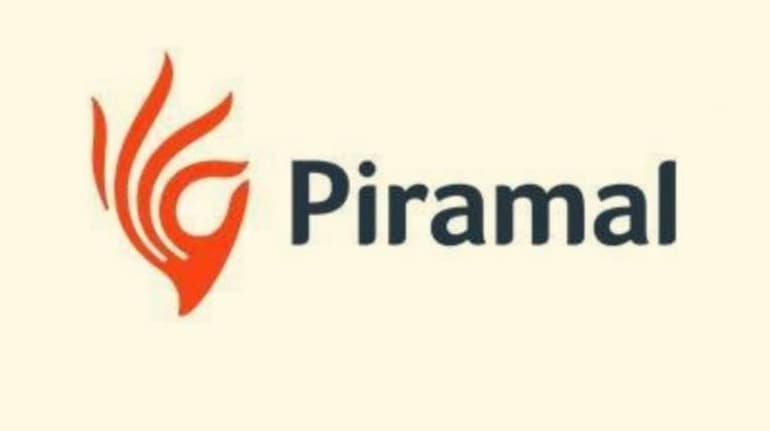



The non-banking finance company arm of Piramal Enterprises, Piramal Capital and Housing Finance, is expected to post sustained growth and turn a profit in the current fiscal after its successful integration with troubled Dewan Housing Finance Corp Ltd (DHFL), group chairman Ajay Piramal said in the company’s FY23 annual report. However, increasing the share of retail loans, raising growth capital, and recoveries from DHFL bad loans will remain key tasks for the management in the process, analysts said.
“In the next five years, Piramal has set a target of 60 per cent to 70 per cent of loan book mix in favour of retail loans, which is a substantial jump from the current 36:64 mix in favour of the wholesale loan book,” Sachin Mehta, director of investment banking at Anand Rathi Advisors, told Moneycontrol on Monday, July 11.
“The clear challenge would be to show higher retail loan disbursements through the now expanded branch network of over 309, as of March 31, 2022, as well as through the fintech initiatives of the company in the digital unsecured as well as the MSME (micro, small and medium enterprises) unsecured segments,” he added.
Piramal Capital’s total assets under management (AUM) stood at Rs 65,185 crore as of March-end, up 33 percent over last year, as per the non-banking financial company’s (NBFC) Q4FY22 investor presentation. Of the total loan book, 64 percent consists of wholesale loans and the remaining is retail advances.
“Now Piramal Capital will have to ramp up the DHFL mortgage business by increasing disbursements, workforce, and investing in technology. They should also try to cross-sell other retail products to customers,” said Akshay Ashok, an analyst at brokerage Prabhudas Lilladher.
Ashok said that to achieve retail loan growth, Piramal Capital can look to partner banks, and get into co-lending
The NBFC also would need to spend heavily on advertising so that its brand can reach the masses as this space is highly competitive, he said.
Asset quality
While the NBFC has been able to bring down the share of wholesale loans to 64 percent as of March-end from 88 percent last year, it reported a net loss of Rs 321 crore during January-March on account of higher provisions made for stressed non-real estate wholesale loans.
During Q4, the lender made incremental provisions and interest reversals amounting to Rs 1,037 crore after it moved some non-real estate wholesale loans to the special-mention account-2 category (SMA-2), it said.
Loans that remain overdue for more than 61 days and up to 90 days are classified under the SMA-2 category by lenders. While these assets are not technically classified as non-performing assets (NPAs), typically, the addition of a substantial account to the SMA-2 list means the NBFC will have to create higher provisions as the account gets closer to the default date.
“Piramal Enterprises’ Q4FY22 earnings (PAT of Rs 1.51 billion vs Rs 8.9 billion in Q3FY22) disappointed as the financial services segment (disclosed for the first time) reported a loss of Rs 3.2 billion,” wrote analysts at ICICI Securities in a post-earnings report dated May 28.
Re-evaluation of the wholesale lending portfolio led to the movement of some non-real estate exposure at holdco (holding company) level into a stage-2 category, it said.
“This came as a surprise given negligible provisions in past 7 quarters and management indicating the adequacy of the provisioning buffer on the wholesale portfolio till last quarter,” the ICICI Securities note said.
Further, Piramal Capital’s credit cost or the capital kept aside for potential bad loans, rose to 5.1 percent during Q4FY22 from 0.7 percent last year.
“It will be prudent (for Piramal Capital) to take a deep dive into its Wholesale loan book and recognise any stressed loans, with adequate provisioning, before it starts trading as a pure-play FS (financial services) company,” said analysts at Motilal Oswal in a post-earnings report dated May 27.
“We have cut our target multiple to 1x P/BV for the Financial Services business on the back of potential asset quality risks in the Wholesale loan book,” it said. P/BV stands for the price to book value, a ratio that compares the value of a company’s shares or market cap to its book value.
To date, Piramal Capital has managed to recover around Rs 430 crore from DHFL’s legacy NPA book, Ashok said, adding that recoveries from this pool of bad loans will give a fillip to the bottom line.
As of March 31, the gross and net NPA ratio of Piramal Capital stood at 3.4 percent and 1.6 percent, lower than 4.1 percent and 2.1 percent last year, respectively.
Capital raise
Analysts say the present 21 percent capital adequacy ratio of Piramal Capital will only give the NBFC near-term headway for growth and it will need to raise incremental capital soon to fund growth.
“Given the regulatory requirement of 15 percent capital adequacy ratio, we believe in the near term Piramal Capital can manage their business but in the medium term, they will have to likely raise capital for fuelling growth and also for any stress that can come in their wholesale book which is still at 64 percent of the overall loan book,” Ashok said.
Mehta shared similar views. “The effect on capital adequacy is due to the DHFL merger and should be adequate for now. However, given the guidance Piramal has given in terms of growth of its loan book, they may need to raise equity capital to support various growth initiatives which are underway,” he said.
Discover the latest Business News, Sensex, and Nifty updates. Obtain Personal Finance insights, tax queries, and expert opinions on Moneycontrol or download the Moneycontrol App to stay updated!
Find the best of Al News in one place, specially curated for you every weekend.
Stay on top of the latest tech trends and biggest startup news.